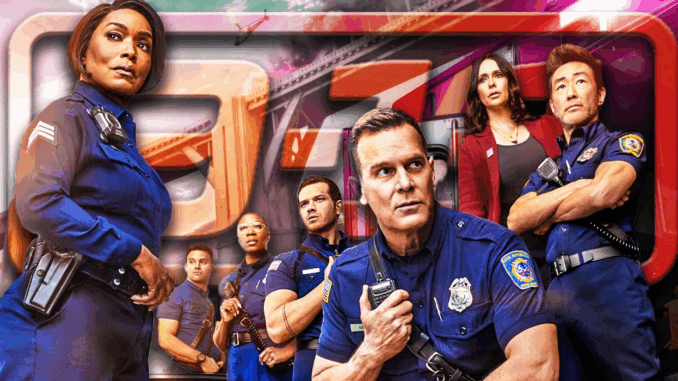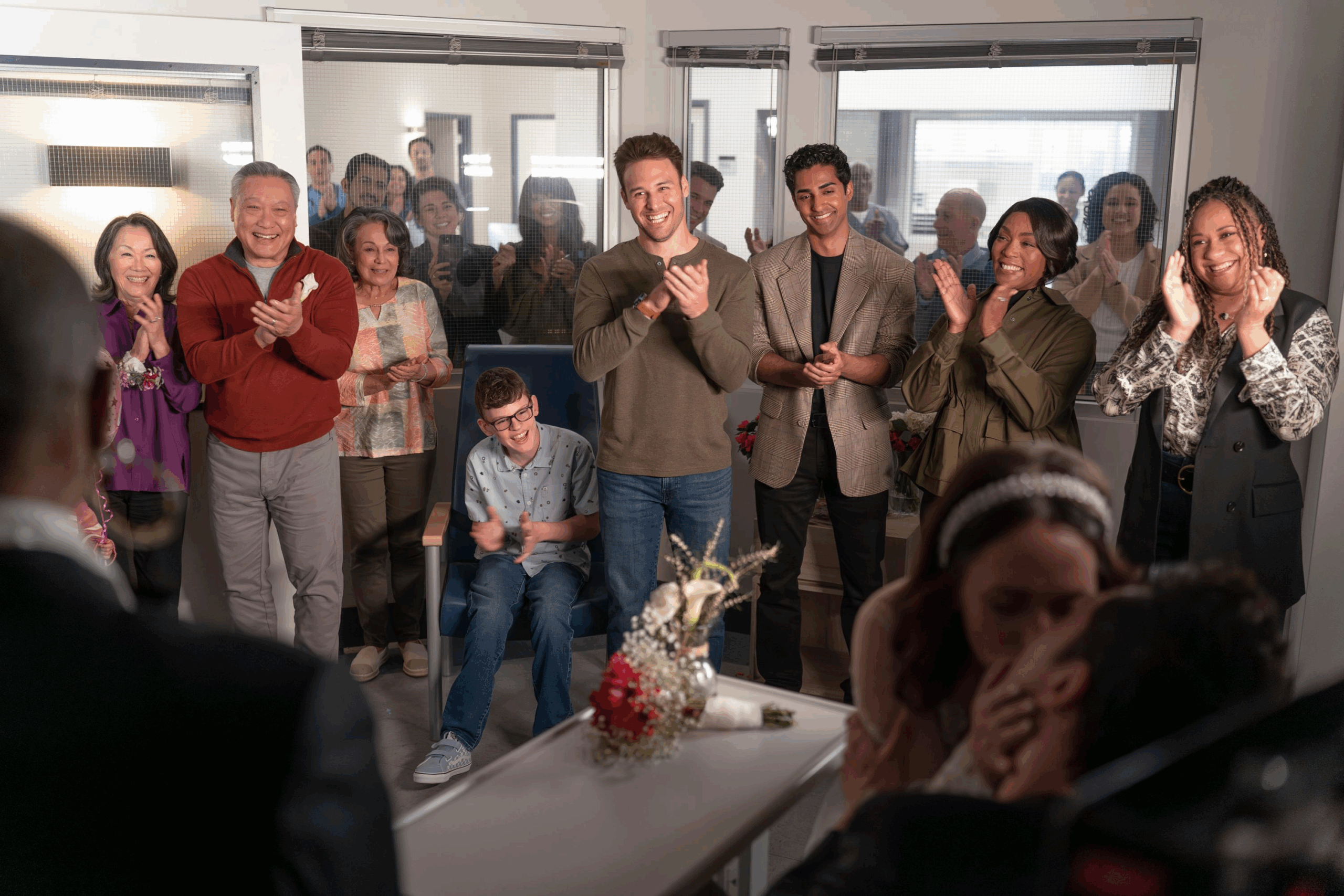
Angela Bassett has won two Outstanding Actress in a Drama Series awards from the NAACP.
Bassett, Britton, and Krause were the show’s first confirmed cast members. The inaugural season won the 2018 Location Team of the Year prize at the California on Location Awards.. 9-1-1’s first season is the beginning of its iconic journey, and its characters have yet to experience their most formative moments. As an introductory series, it also lacks some of the “meat” that keeps other seasons so tightly connected. These facts aren’t the source of the season’s woes. They’re certainly valid criticisms of 9-1-1’s debut, but the season’s relative obscurity is ultimately tied to its cast. That’s an odd thing to say, especially considering the show’s core cast has remained essentially unchanged for eight seasons, but it’s true. 9-1-1’s first season is unfairly kneecapped by two glaring casting differences.
Perhaps the most obvious of these omissions is apparent in the first few minutes of the first episode. After that iconic ringtone, it’s not Jennifer Love Hewitt picking up the phone. The first season of 9-1-1 doesn’t even include Maddie. Instead, its framing depends on the emergency line operator, Abigail “Abby” Clark (Connie Britton). Notably, Abby does not begin as a loner. She lives with her dementia-stricken mother (Mariette Hartley) and often interacts with the day nurse, Carla Price (Cocoa Brown). The second crucial exclusion may be the ten-episode lineup’s thorniest sticking point. Firefighter Edmundo “Eddie” Diaz (Ryan Guzman) is not part of the 118’s initial lineup. There’s no real “replacement” for him, either. When 9-1-1 begins, fan-favorite Evan “Buck” Buckley (Oliver Stark) is filling the lowly probie spot. The freshly-recruited firefighter boasts a more naïve outlook and playboy attitude. By extension, the cast lacks some bonds that current fans adore.
The love story between Bobby Nash (Peter Krause) and Athena Grant (Angela Bassett) is just beginning to bloom at the end of the first season. Logically, Maddie’s absence also takes her crowd-pleasing romance with Howard “Chimney” Han (Kenneth Choi) off the table. Even Henrietta “Hen” Wilson (Aisha Hinds) faces issues with her marriage to Karen (Tracie Thoms). Everyone — even the 118’s beloved captain — is still a relative greenhorn. They’ve yet to experience the turbulence that defines their later arcs, so they’re all just a bit different.
Let’s be honest—Season 1 of 9-1-1 isn’t as emotionally complex or polished as its later seasons. But does that mean it’s not worth your time? Not even close. In fact, the first season does something incredibly important: it lays the foundation for one of TV’s most addictive emergency dramas. If you’re expecting insane plot twists and deeply fleshed-out characters right off the bat, you might be disappointed. But if you stick around, you’ll see the raw energy and emotional hooks that make this season a hidden gem.
What Makes 9-1-1 Season 1 Unique
The Show’s Bold Concept
Before 9-1-1 became a household name, Season 1 introduced us to the chaos behind emergency calls. It wasn’t just about cops, firefighters, and paramedics—it was about the intense, messy, and very human side of emergency services.
A Character-Driven Drama in Its Infancy
The first season gave us glimpses into the personal lives of Bobby, Athena, Buck, and Abby. While it lacked the deep emotional arcs we’d see later, it still planted the seeds for major character development.
Bobby Nash—The Calm Before the Emotional Storm
Bobby starts off as the classic calm-in-the-storm captain, but even in Season 1, his haunted past is hinted at, creating intrigue and emotional tension.
Athena Grant—Powerful, But Underutilized
Angela Bassett’s Athena is a force, but in Season 1, her storyline feels more like a slow burn than the explosive plots we get later. Still, her presence is magnetic from the start.
The Early Emergencies—Less Flash, More Heart
Smaller Stakes, But Still Intense
Compared to later seasons where cars explode mid-air and snakes crawl out of toilets, Season 1 emergencies are more grounded. But that’s not a bad thing—it makes them feel more real and emotional.
The Baby in the Wall Episode
This early episode is arguably the most memorable in Season 1. It’s dramatic, emotional, and shows what 9-1-1 does best: telling outrageous stories rooted in real feelings.
Emotional Weight Over Shock Value
Rather than relying on “how did this even happen?” moments, Season 1 leans into the emotional impact of each call. And that’s what makes it stick.
Season 1 Lays the Groundwork for Bigger Things. Some loved it, some hated it—but you can’t deny it was a pivotal relationship that pushed Buck to grow emotionally. It’s also one of the first times the show explores romance with genuine vulnerability.
Hints of Bigger Emotional Payoffs
Bobby’s guilt. Athena’s family struggles. Buck’s immaturity. Season 1 doesn’t fully dive into these, but it sets them up with just enough dramatic foreshadowing to keep you watching.
The Evolution Starts Here
Think of Season 1 as the origin story of a superhero series. It’s a little rough, a little awkward, but full of heart, potential, and bold choices.
Comparing Season 1 to the Later Seasons
Season 1 vs. Season 3—Worlds Apart
By Season 3, 9-1-1 is a well-oiled, explosive drama machine. In comparison, Season 1 feels like an indie movie—lower budget, less flash, but more heart.
Pacing and Structure
Later seasons perfected the balance between emergencies and character development. Season 1 leans more on episodic cases and less on long-form storytelling—but that’s not necessarily a flaw. It’s just the beginning.
Dialogue and Chemistry
The dialogue in Season 1 is a little stiff at times, and the chemistry between characters hadn’t fully clicked. But by watching it, you appreciate how much growth happens later.
Why You Should Still Watch Season 1
Context Is Everything
Skipping Season 1 means missing out on key backstory that makes later episodes hit harder emotionally. Knowing where characters started makes their evolution more powerful.

It’s Like Level 1 in a Game
You don’t start a video game at the boss level. You start at level one, learning the rules and exploring the world. Season 1 is that tutorial level—and it’s actually really fun.
It’s Gritty, Grounded, and Real
There’s something raw about Season 1. No over-the-top production, no unrealistic stakes—just real people doing hard jobs with heart.
Final Thoughts – Don’t Skip the Start
Great Shows Don’t Start Perfect
Let’s face it—every amazing show has a rough first season. Remember The Office’s first few episodes? Or Parks and Rec? It’s the same with 9-1-1. It’s not flawless, but it’s full of promise, heart, and just enough chaos to keep you hooked.
From Good to Great Starts Here
So, should you watch 9-1-1 Season 1? Absolutely. Because it’s not about how it starts—it’s about where it takes you. And trust me, the ride is worth it.